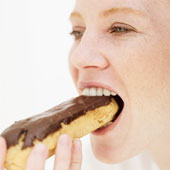Tuesday, 7 December 2010
Two wrongs absolutely do make a right
This post will attempt to combine mathematics, grammar and naughty school boys in a seamless and educative fashion.
Here goes.
I once brought my mathematics teacher close to a nervous breakdown. (At least that's what he said to my mother at parents' evening.)
Mr Kilburn had spent weeks explaining the concept of negative numbers. In one particular lesson, I must have snorted loudly or made some other indication of disdain.
'What was that, Moptop?'
'Nothing, Mr. Kilburn, Sir.'
'Were you sniggering?''
'Not exactly, Sir. It was more of a sigh.'
'A sigh? Why?'
'Well, it's these negative numbers, Sir. I don't believe in 'em.'
'You don't believe in them?'
'No, Sir.'
'But, Moptop, if I gave you an apple and you ate it, you would have minus one apple.'
'No, Sir, I'd have an apple core.'
And so on. The battle over the existence of negative numbers ran three times a week for two years and goes a long way to explaining the Unclassified mark in my Maths 'O' Level.
Today, in a moment of rare joy and rapture, I stumbled across a copy of The Best of Jennings by Anthony Buckeridge. (I stumbled in all senses of the words as it was a pile 'em high, sell 'em low book shop - only the staff had Spoonerised this instruction.) I've been reading it tonight and am half way through Book One.
For most of my childhood, Jennings was my hero - along with Nigel Molesworth and William Brown. (Yes, I've always had a penchant for naughty boys.) In the local library, there was a row of Jennings' books which I worked my way through (1 - 23*) and then started from the beginning again. Tonight, I am beginning to understand that Jennings was clearly a very bad influence on an innocent and impressionable young mind.
Stop laughing.
Jennings has an answer for everything, using an admirable form of logic. For example: instructed to label his gym shoes he writes his name in one shoe and 'ditto' in the other. Half way through Chapter Six tonight, I realised that Jennings is the reason I argued with Mr. Kilburn. He is the reason I failed Maths 'O' Level. He is the reason my bank account likes negative numbers - which I still don't believe in.
I should sue that library.
It was odd that I couldn't bring myself to believe in something that wasn't there (not least because for several years I harboured ambitions to be a missionary). Odd, because I had very much taken to heart William Brown's assertion that 'Two negatives make a positive.' In one** of the Just William stories, he asks his mother, Mrs Brown, whether he can have a party whilst she is away. 'No, William, you may not,' is the reply. William takes the double negative to mean that, yes, he can have a party - a technique I employed several times myself during my teens.
A double negative in English works thus: No, I do not agree becomes I certainly agree.
Therefore No, you may not have a party becomes Of course you can have a party. Please blow the dust off the Créme de Menthe and make a lethal punch that will bring most guests to their knees after three sips. Also, refilling the whiskey bottles with cold tea and the vodka bottles with water is absolutely fine by me.
I recently applied the double negative rule to a double double entendre using the logic that one cancelled out the other.
It doesn't.
And neither does eating two apples result in minus two apples, but rather plus two apple cores.
Still, none of this is my fault as I was brainwashed as a child. That's mine, Jennings', William's and Nigel's story and we're sticking to it.
* Books 24 & 25 were written in 1991 & 1994 when I was going through my Virago Modern Classics phase.
** A Question of Grammer is in Just William (1922)
Subscribe to:
Post Comments (Atom)






Your teacher was obviously wrong, even in the closed environment of theoretical mathematics.
ReplyDeleteIf you had an apple and then ate it all (core, stalk, pips, the lot), you'd have ZERO apples in your hand and one apple in your digestive system. You'd still have one apple though. Poor example.
The thing about negative numbers is, like so much of theoretical mathematics, you just have to accept they exist even if you haven't seen one. Much like a GERUND.
Think of them like a debt: the uter wet and WEDE Fotherington-Tomas had an aple, and you TOKE it from him. He wuld hav MINUS 1 aple (hem hem), and you wuld hav PLUS 1 aple (cheers ect.). He wuld not hav ZERO aples becoz hedmaster GRIMES wuld mak you giv it bak chiz chiz.
You might be right about double entendres though. They are not as bad as single entendres, fo sho. I'd give you an example, but since my mind has gone blank, I can't give you one...
I'm relieved on the subject of entendres, Matt, that you didn't just slip one in ...
ReplyDeleteRe. apples - I am none the wiser and my bank accountant is not the least improved.